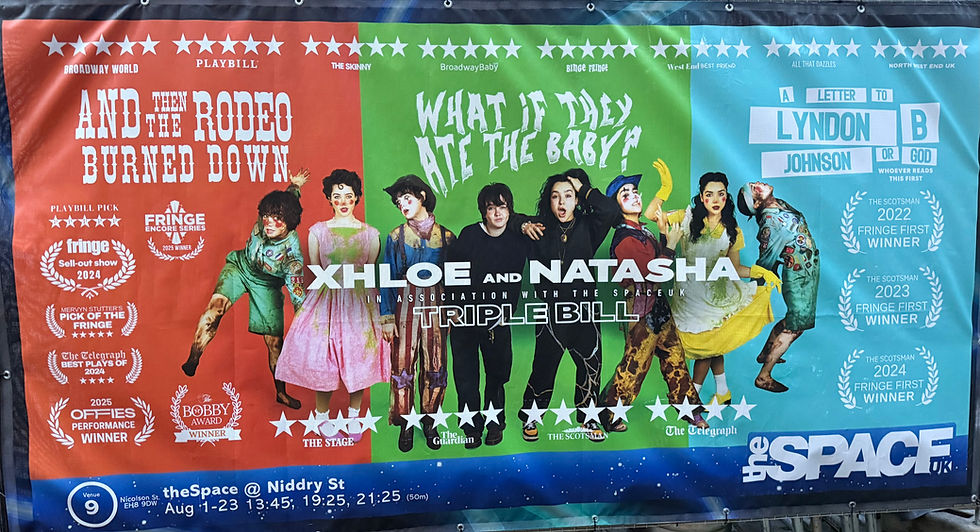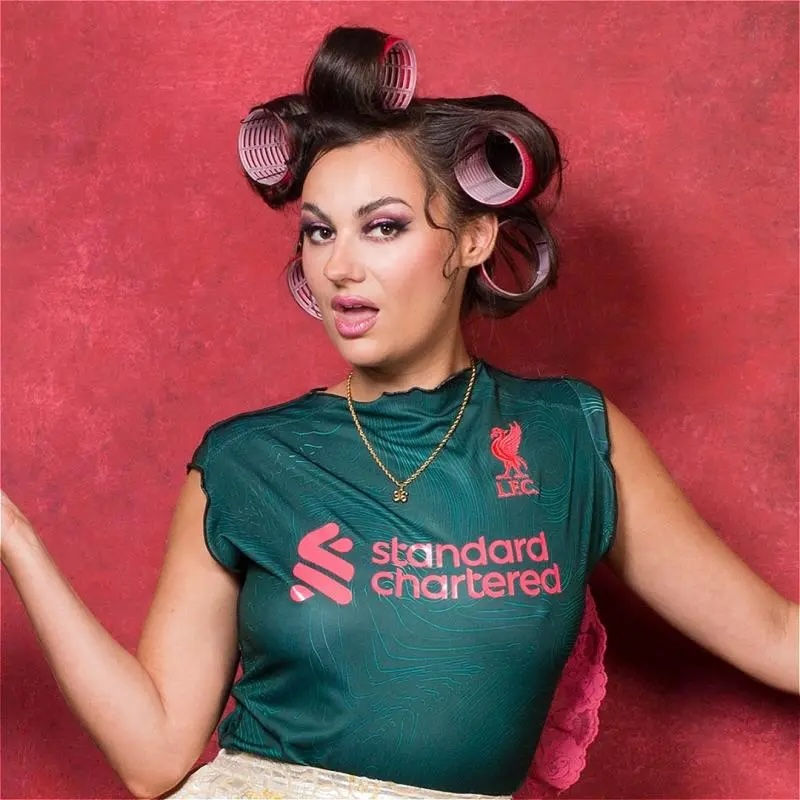Review: A Wilde Life at theSpace on the Mile - EdFringe
- Aug 18, 2022
- 3 min read
Reviewed by Natalie Low
Anyone familiar with the history of Oscar Wilde knows his post-fame was nothing but tumultuous. A Wilde Life is an original musical written about the imaginings of Oscar Wilde in France after his incarceration in London. Wilde has now found himself in a French bar, where everyone in the bar somehow seems absolutely fascinated by his story. Wilde is in a desolate state, having lost everything and everyone back in London, and when everyone starts to ask about his life and what has happened, he begins casting everyone in this bar as people from his past. The jazz-themed music and lyrics were fun, and well-written. It fits the setting of this story well, and the performers are strong and confident in their singing ability. The writers’ efforts in researching Oscar Wilde is evident in them being able to take his writing style into this piece. None of the actors sound out of place and time thanks to this.
The performers truly shine when they go into song with the standout being the fourth number ‘Careful, Darling’ led by Imogen Chancellor and Dalia Kay. The song acts as their ‘Mother Knows Best’ in Tangled – it’s sassy, yet caring, and the 2 performers lead the charge with just the right amount of both. Another big standout was the performance of Zak Muggleton Gellas, who plays one of Wilde’s lovers. A soft yet strong voice, their performance of Bosie is tender and sad, making you sympathise. Freya MacTavish plays the betrayed wife Constance Wilde, who struggles with Oscar’s infidelities. Her heartbreaking solo ‘Silly Connie’ is emotional, but quietly strong. Milly Fern Parker plays the Marquess of Queensbury, a disapproving father that is the main villain of the story. Her confidence is shown through her performance, and she hits the notes pretty perfectly. Although one must wonder if she really needed to put on a “manly” gruff voice to play this character since it did seem to take away from her singing. Jake Glantz leads the company as Oscar Wilde and makes a grand entrance with a slow walk from the back of the audience to the stage. He brings a strong presence emulating Wilde, although there were moments of stiffness coming from the actor. Understanding that this is a Wilde post-imprisonment, one must wonder if playing depressed all through the show was really the best version of Wilde. There were moments where it felt that Glantz took himself a bit too seriously, and you do miss a little bit of cheeky fun coming from the fashionable playwright. He does showcase the occasional charm and rebellion that made Oscar Wright so scandalous for his time.
There are moments of slight confusion in the story as the characters go back and forth playing several characters, and you feel slightly lost with their time and character shifts. If it weren’t for the change in lighting, it was sometimes difficult to tell whether we were back in the bar, or in the past. Some throwaway lines written for laughs did not really work as effectively, and instead took some attention away from the main story. Fitting so many songs in a 40-minute show also meant that the pacing of the show felt odd, with not a lot of time for the audience and the characters to sit in their emotional moments for longer than preferred.
The lighting of the show was pretty on-the-nose, using a lot of general lights, and reds, to indicate that we were in Paris in the 1800s. Spotlights for solos, and a wash for group numbers. The set puts the audience in the location quickly, although perhaps they have underused the furniture around them through the show. The jazz-inspired choreography is strong, with the company mostly in synchronization through the dances. The black and white themed costumes are a standout, capturing the time period with a modern and jazz take with fishnet stockings, lace, and corsets. The only hint of colour we see is Oscar’s purple cravat. Perhaps an indication that Oscar was perhaps just a little too ahead of his time.
Overall, it is a fun spectacle of a show, with great music written. The discussion of a society who were not ready for a progressive Wilde, who had to find secret means to pursue his homosexual relations, is timely and relevant. A worthy watch, and I am excited to see where else this musical can go from here.

Image Supplied




